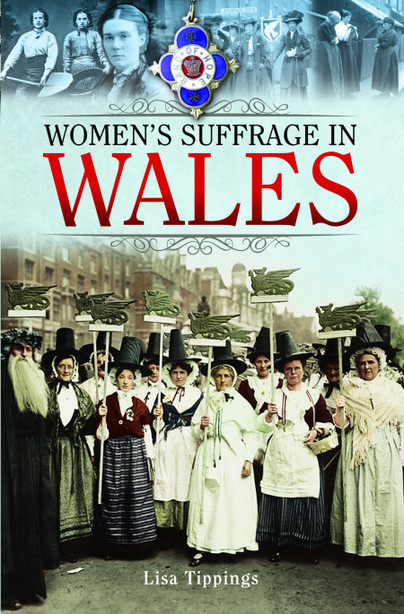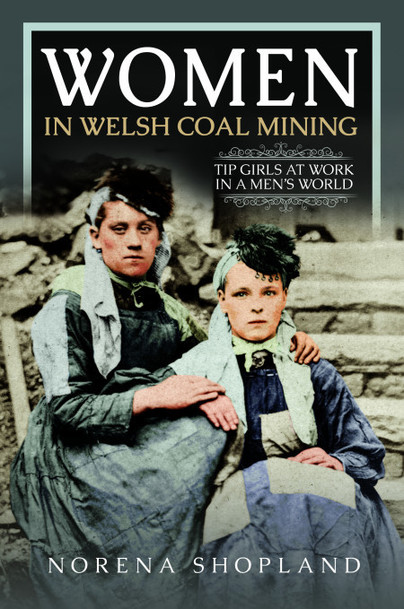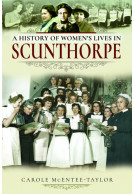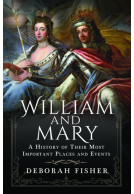Women's Suffrage in Wales (Paperback)
Imprint: Pen & Sword History
Pages: 146
Illustrations: 45
ISBN: 9781526723994
Published: 21st January 2019
(click here for international delivery rates)
Order within the next 1 hour, 55 minutes to get your order processed the next working day!
Need a currency converter? Check XE.com for live rates
| Other formats available | Price |
|---|---|
| Women's Suffrage in Wales ePub (21.3 MB) Add to Basket | £6.99 |
Women’s Suffrage In Wales allows its readers to take a glimpse at the lives of the many ordinary Welsh women who contributed in some way to the suffrage movement. Although suffragettes from across the rest of Britain, such as Emmeline Pankhurst and Emily Wilding Davis, have become household names, little is ever mentioned about the women living in Wales who fought for equal opportunities and the right to vote.
Women’s Suffrage in Wales seeks to readdress this balance. Within her book, Lisa Tippings has chosen to focus on the lives of the mainly working class women who realised the movement gave them an opportunity to embrace change. Despite living in difficult conditions, the wives of colliery workers and everyday labourers overcame lives of poverty and squalor, to help fight for better lives for those women so often neglected and marginalised.
The book also highlights the key role played by important female figures from Wales’ past; names in jeopardy of falling into obscurity. Close attention is paid to Gertrude Jenner, Amy Dillwyn and Elizabeth Andrews amongst others, who in spite of their own difficult circumstances, dedicated themselves to making the lives of those around them more fulfilling. At the same time they ensured that future generations of Welsh women would enjoy a never before experienced sense of freedom and liberty.
Women's Suffrage in Wales has given a voice back to the Welsh women of the suffrage movement, who, for a long time, have been ignored. It is a great way to learn about the almost forgotten Welsh feminists of the suffrage movement. This book is an easy read that can be enjoyed both by readers with an interest in the suffragette movement, and those studying the subject.
That Herstorian
Read the full review here
The author has done an excellent job of including the context of the setting which adds a ton of value in understanding, sympathizing, and learning about the motivations of these incredible women... The people are simply inspiring If you have an interest in the suffrage movement this book is a great start!
The Historical Diaries
Read the full review here
Listed in 'Things to do' feature in relation to International Women's Day
Welsh Border Life, March 2019
If you’re looking for a book to provide a good historical introduction and overview of women’s suffrage in Wales then this is it. It introduces the key players and does a really solid job of placing a dynamic movement in a Welsh context. It provides a Welsh angle to a very important historical topic that is often generalised as a British issue.
Hisdoryan, Claire Miles
Read the full review here
About Lisa Tippings
Lisa Tippings is a freelance writer living in Swansea. Born in the South Wales valleys, she grew up with her parents and twin sister in a terrace house overlooking the Welsh hills. Sunday nights were spent watching costume dramas on television, and these in turn inspired a love of nineteenth century literature - Eliot, Bronte and Dickens being the novelists she was particularly drawn to. A career in English teaching followed, before she took the plunge and decided to dedicate herself to writing full time.
Having written a book about the suffrage movement in Wales, and a history of the city of Swansea, The Life Of George Eliot is Lisa’s third book.
When she is not writing, Lisa can often be found exploring the museums and galleries of Wales, indulging in her love of book shopping or curled up in her favourite arm chair with a good book on her lap and a cup of tea in her hand.
Women in Welsh Coal Mining Tip Girls at Work in a Men’s World (Hardback)
We tend to think of coal mining as predominantly a male occupation, with women confined to roles as wives and support workers. Women worked at the coal face for many years before they were banned in 1842. However, mere legislation was not going to stop them - many continued to work underground, with mine owners making little attempt to stop them due to the low wages paid to women. Some would dress and pass as men to fool visiting inspectors. For the majority though, they worked on the pit brow where they received the coal, cleaned, sorted and cut it to uniform size. Dirty, laborious work, including…
By Norena ShoplandClick here to buy both titles for £36.99

















